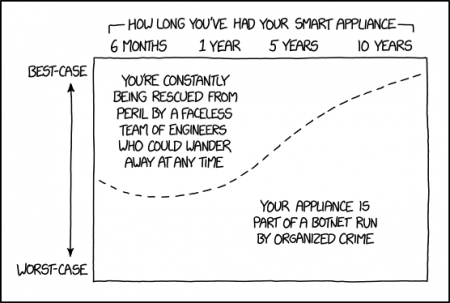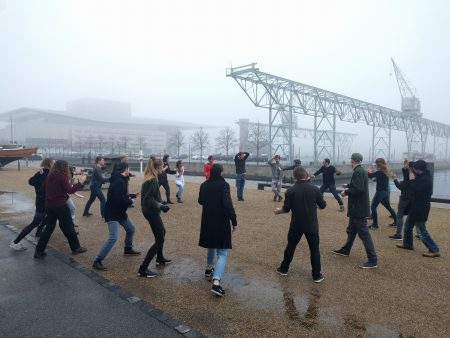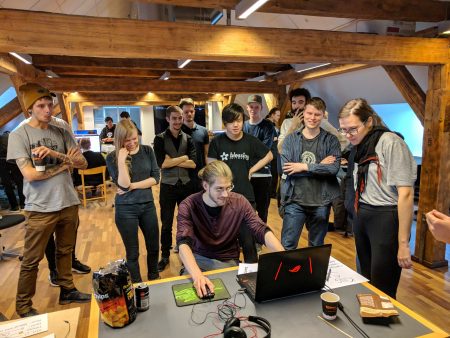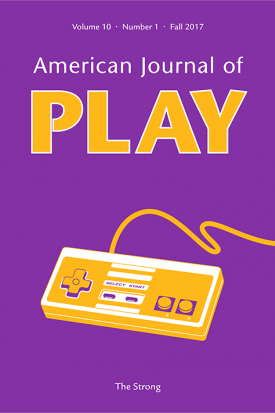XKCD is right: The Internet of Things is not going to work, as long as there is no guarantee of security updates, which there won’t be.

(I will start posting more.)
My name is Jesper Juul, and I am a Ludologist [researcher of the design, meaning, culture, and politics of games]. This is my blog on game research and other important things.
XKCD is right: The Internet of Things is not going to work, as long as there is no guarantee of security updates, which there won’t be.

(I will start posting more.)
This is for the program that I run in Copenhagen. Join us!
Apply to the Visual Game and Media Design Master’s program at KADK in Copenhagen. The Application deadline for the 2018-2020 class is March 1st.

The application process is now open for the Visual Game And Media Design master’s program at KADK – the Royal Danish Academy of Fine Arts, School of Design in Copenhagen.
This is a two-year program running from September 1, 2018. The application deadline is March 1st.
Visual Game and Media Design is an intensive two-year program for students wishing to do creative work in game design, visual media, and beyond. During the program, you will continually combine the hands-on creation of digital games, animations, motion graphics and visual designs with innovative conceptual approaches to game design and storyworld design.
Who can apply?
 The master’s program in Visual Game and Media Design is in English, and is open to all students, Danish and International, with a relevant bachelor’s degree in fields such as graphic design, game design, animation, or 3D modeling. We encourage students with nontraditional backgrounds to apply.
The master’s program in Visual Game and Media Design is in English, and is open to all students, Danish and International, with a relevant bachelor’s degree in fields such as graphic design, game design, animation, or 3D modeling. We encourage students with nontraditional backgrounds to apply.
More about the program and application process
To learn more about the program, and to apply, go to the website or email program head Jesper Juul, jjuul@kadk.dk
https://kadk.dk/en/programme/visual-game-and-media-design
Why study at KADK in Copenhagen?
KADK is a leading academy in Scandinavia in the fields of architecture, design and conservation. It is located centrally by the Copenhagen harbor.
Copenhagen is a hub for video game development, with a vibrant English-language game development community, and home to both small and large companies such as Sybo games, IO Interactive, Playdead and Unity3D.
KADK works closely with (and is situated next to) the National Film School of Denmark, and with the professional TV and Film community in Denmark.
 For your intellectual stimulation, American Journal of Play Volume 10, Number 1.
For your intellectual stimulation, American Journal of Play Volume 10, Number 1.
At KADK in Copenhagen, we are posting a call for PhD applications for 2018, with deadline January 12, 2018.
This is an open call which can include, of course, games. A game PhD would be located with the research group of Visual Media. We are interested in candidates with strong research interests of their own.
KADK is a lively multidisciplinary institution located centrally in Copenhagen, offering a BA and MA in game design.
Please contact me for any questions. Jesper Juul. jjuul@kadk.dk
Open call for PhD applications at The Royal Danish Academy of Fine Arts Schools of Architecture, Design and Conservation (KADK)
The Royal Danish Academy of Fine Arts Schools of Architecture, Design and Conservation (KADK) invites applications within subject areas of the institution for prequalification in connection with The Danish Council for Independent Research (DFF) Call for Research Educations outside the Universities (PhD).
PhD positions are 3 years, and include full tuition and a salary of approximately 3,350 EUR per month before taxes (DKK 300,174 per year) plus pension contributions of 17% of the salary (DKK 41,013 per year).
Application
Applications to KADK must contain the following documents in PDF format:
- Project description of no more than 5 pages. Please follow the DFF–Project Description template (https://dff.dk/en/application/calls/call-autumn-2017.pdf, chapter 3.3) and include references/bibliography.
- Applicant’s CV and list of publications for applicant (see also chapter 3.3)
- Diploma and complete academic transcript, from applicant’s bachelor’s programme as well as graduate studies – or alternatively a written evaluation of your master’s thesis.
Please mention the relevant research program to evaluate your application: Architecture, Design or Conservation.
Application deadline
12 Jan at 12:00 AM (Danish time).
To apply for the position
For questions concerning the advertisement contact Ditte Dahl at ditte.dahl@kadk.dk (general), or Jesper Juul jjuul@kadk.dk (for game-related questions).
For your theoretical dissection.
Kinephanos special issue: “It’s [not just] in the game”: the promotional context of video games / le contexte promotionnel des jeux vidéo
Volume 7, Issue 1, November 2017 / Volume 7, numéro 1, novembre 2017
Edited by / Dirigé par Ed Vollans, Stephanie Janes, Carl Therrien & Dominic Arsenault
Introduction: “It’s [not Just] in the Game”: the Promotional Context of Video Games
ED VOLLANS, STEPHANIE JANES, CARL THERRIEN & DOMINIC ARSENAULT
Peer-reviewed articles / Articles avec comité de lecture
Exploring the Myth of the Representative Video Game Trailer
JAN ŠVELCH
Independent Scholar
Now You’re Playing with Adverts: A Repertoire of Frames for the Historical Study of Game Culture through Marketing Discourse
CARL THERRIEN & ISABELLE LEFEBVRE
Université de Montréal
Man’s Best Enemy: The Role of Advertising During Atari’s Launch in Brazil in 1983
ANDRÉ FAGUNDES PASE & ROBERTO TIETZMANN
Pontifícia Universidade Católica do Rio Grande do Sul (PUCRS)
“The most Cinematic Game yet”
ED VOLLANS
Bournemouth University
Marketing Authenticity: Rockstar Games and the Use of Cinema in Video Game Promotion
ESTHER WRIGHT
University of Warwick
Configurative Dynamics of Gender in Bioware’s Marketing for the Mass Effect Franchise
LEANDRO AUGUSTO BORGES LIMA
King’s College London
Pervasive Games Beyond the Promotional Tools: Approaches of Aesthetic Pervasiveness in Consumption of Experience
THAIANE MOREIRA DE OLIVEIRA
Federal Fluminense University
Not actual game play, but is it real life?: Live-action footage in digital game trailers and advertising as gamerspace
THEO PLOTHE
Walsh University
Quality of Video Game Trailers
ZEYNEP TANES-EHLE & SARA SPEEDY
Duquesne University
I keep returning to this question: When we play a game, are we free – or are we prisoners of the game rules?
Here is Playing, my contribution to Henry Lowood and Raiford Guins’ wonderful Debugging Game History collection.
In the piece I argue that there are four main conceptions of the act of game-playing, going from playing as submission to playing as creation.
1. Playing as submission, where the player is bound by the limits set forth by the game rules.
2. Playing as constrained freedom, where the game creates a space in which players acquire a certain amount of freedom and the opportunity to perform particular acts.
3. Playing as subversion, where the player works around both the designer’s intentions and the game object’s apparent limitations.
4. Playing as creation, where the game is ultimately irrelevant for (or at least secondary to) the actual playing.
Read the full text here: http://www.jesperjuul.net/text/playing/
For your theoretical consumption:
| Introduction | |
| Ashley Brown, Rafael Bidarra |
| No-one Plays Alone | |
| Chris Bateman |
| “Ruinensehnsucht”: Longing for Decay in Computer Games | |
| Mathias Fuchs |
| Creative Communities: Shaping Process through Performance and Play | |
| Lynn Parker, Dayna Galloway |
| Playful Fandom: Gaming, Media and the Ludic Dimensions of Textual Poaching | |
| Orion Mavridou |
| A Review of Social Features in Social Network Games | |
| Janne Paavilainen, Kati Alha, Hannu Korhonen |
| Focus, Sensitivity, Judgement, Action: Four Lenses for Designing Morally Engaging Games | |
| Malcolm Ryan, Dan Staines, Paul Formosa |
| Developing Ideation Cards for Mixed Reality Game Design | |
| Richard Wetzel, Tom Rodden, Steve Benford |
| Source Code and Formal Analysis: A Reading of Passage | |
| Ea Christina Willumsen |
ISSN: 2328-9422
For your theoretical delectation: Well Played: volume 6 number 3
Agency, Identity, Sex, Gender, and Pokémon Go
Allison Bannister
So Close You Can Feel Her
Prostitution, Proximity & Empathy in Grand Theft Auto 5
Elena Bertozzi, Amelia Bertozzi-Villa
Learning at the Farm
Developmental Psychology in Peekaboo Barn
Carly A. Kocurek, Jennifer L. Miller
Taking Over the World, Again?
Examining Procedural Remakes of Adventure Games
Anastasia Salter